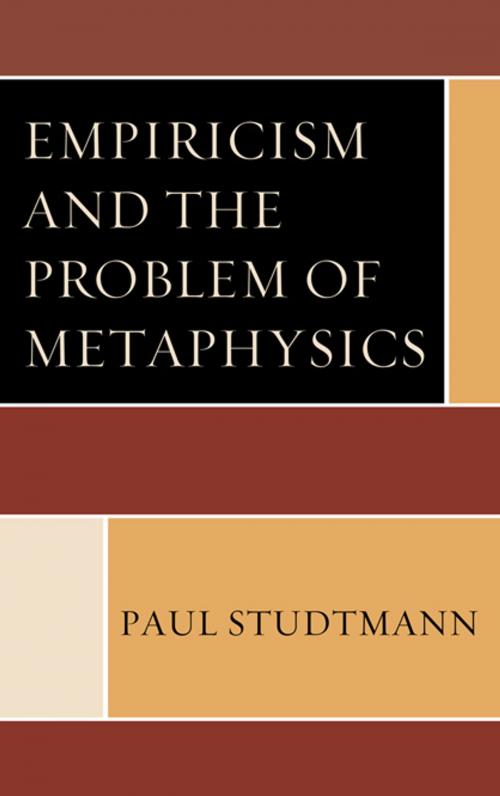Empiricism and the Problem of Metaphysics
Nonfiction, Religion & Spirituality, Philosophy, Logic, Epistemology| Author: | Paul Studtmann | ISBN: | 9780739142578 |
| Publisher: | Lexington Books | Publication: | October 11, 2010 |
| Imprint: | Lexington Books | Language: | English |
| Author: | Paul Studtmann |
| ISBN: | 9780739142578 |
| Publisher: | Lexington Books |
| Publication: | October 11, 2010 |
| Imprint: | Lexington Books |
| Language: | English |
If there is one utterly inescapable problem for the metaphysician, it is this: is metaphysics itself a theoretically legitimate discipline? Is it, in other words, capable of a systematic and well-confirmed set of theoretical results? And if not, why not? From its inception, metaphysics has found itself exercised by the nagging worry that its own inquiries might reveal it to be a subject without an object, or a mode of inquiry without a method. Such concerns were voiced as early as Plato's discussion of the battle between the Gods and Giants. Since then, no era of its history has spared metaphysics some rehearsal of this question. In Empiricism and the Problem of Metaphysics, Paul Studtmann defends an empiricist critique of metaphysical theorizing. At the heart of the critique is an empiricist view of a priori knowledge, according to which all a priori knowledge is empirical knowledge of the results of effective procedures. Such a view of a priori knowledge places severe limits on the scope a priori speculation and indeed places beyond our ken the types of claims that metaphysicians as well as traditional epistemologists and ethicists have typically wanted to make.
If there is one utterly inescapable problem for the metaphysician, it is this: is metaphysics itself a theoretically legitimate discipline? Is it, in other words, capable of a systematic and well-confirmed set of theoretical results? And if not, why not? From its inception, metaphysics has found itself exercised by the nagging worry that its own inquiries might reveal it to be a subject without an object, or a mode of inquiry without a method. Such concerns were voiced as early as Plato's discussion of the battle between the Gods and Giants. Since then, no era of its history has spared metaphysics some rehearsal of this question. In Empiricism and the Problem of Metaphysics, Paul Studtmann defends an empiricist critique of metaphysical theorizing. At the heart of the critique is an empiricist view of a priori knowledge, according to which all a priori knowledge is empirical knowledge of the results of effective procedures. Such a view of a priori knowledge places severe limits on the scope a priori speculation and indeed places beyond our ken the types of claims that metaphysicians as well as traditional epistemologists and ethicists have typically wanted to make.















